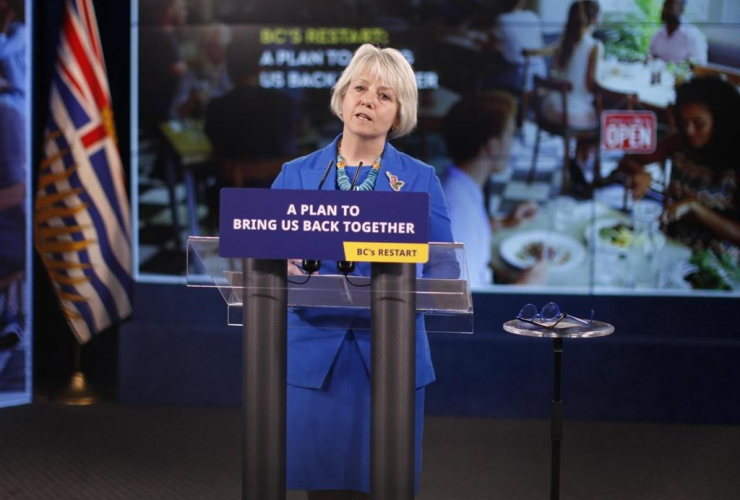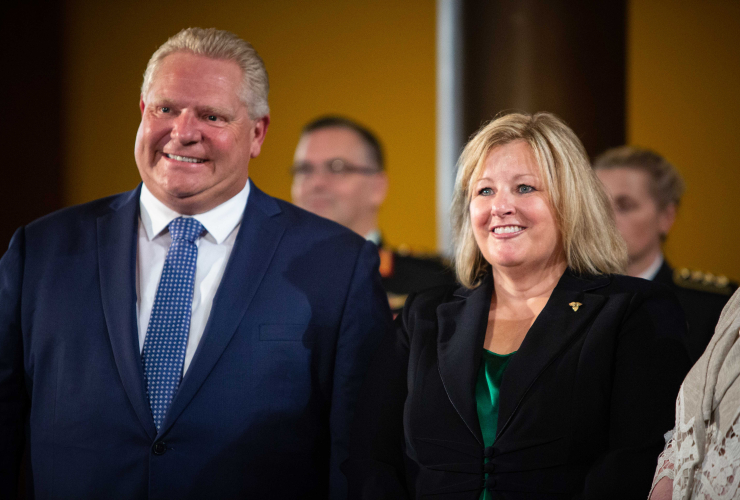Cory Kinney’s daughter wasn’t able to learn at a regular public school. So now he drives her from North Vancouver over a bridge and through traffic twice a week to attend a program where she gets the support she needs. Kinney now fears his daughter and as many as 75,000 other students in B.C. may lose access to similar school programs that provide education in nontraditional settings.
Called Distributed Learning (DL) programs, these schools are the last resort for some of B.C.’s most vulnerable students. About a third of the students enrolled in DL school programs face educational barriers because they have diverse learning needs, diagnosed disabilities, or live in rural/remote communities with few options.
In spring 2020, B.C. passed the Education Statutes Amendment Act, Bill 8-2020, which came into force July 1, in an effort to “moderniz(e) the delivery of online learning programs,” according to the Ministry of Education. The act removes all mention of Distributed Learning (DL) and replaces it with Online Learning (OL), and provides new guidelines about which OL schools students can attend. The act redefines OL schools as those that “offer instruction to its students through online learning only,” which parents like Kinney worry will end all in-person instruction children in DL programs now receive.
Parents, administrators, and groups that advocate for students with complex learning needs believe that the ministry, in its attempt to modernize and make less confusing an often misunderstood form of education, has unwittingly taken away the “choice of last resort” for many B.C. students.
“Shock … that’s the biggest feeling that (parents) have,” says Allan Saugstad, a principal with Partners in Education (PIE), a DL school program with 1,200 learners throughout the province. “And how can this happen?”
Saugstad explains that these changes will impact three-quarters of his students, and he isn’t even sure if schools like his, which provide a hybrid DL program with part-time in-person instruction with many students attending from outside district boundaries, will be allowed to operate after next year.
Parents like Kinney choose DL programs because they provide students with some of the structure of public schooling, but with the flexibility needed for complex learners to excel. Kinney says many parents think the ministry doesn’t understand the ramifications of the amendment and question why it was made without consulting student advocacy groups, DL program principals, and parents of complex learners.

Lost through the cracks
“Forced out” is how Tracy Humphreys, founder and president of BCEdAccess, describes it when families “pull their children out of school because they're worried about their safety, their mental health, or because the school just makes it impossible for the (student) to actually attend and learn anything…
“So parents make the choice, but it's not a choice,” says Humphreys, whose group gives an advocacy voice to parents, guardians and students of complex learners.
She, too, believes the looming educational reform was passed without an understanding of who might fall through the cracks. The pandemic reinforced what she already knew: “That (school) choice is important,” especially for students with learning differences, underlying health conditions, or those living in far-flung communities, all of whom particularly suffered when school went exclusively online. The current school system “doesn’t provide equitable access to education” for these vulnerable students, she says.
Which is how many families end up in Distributed Learning. “For some families, it’s their first choice, or sometimes, it’s their last resort,” says Saugstad.
British Columbia has a long history of DL programs, and school administrators in remote school districts tell stories of children rowing over waterways to attend school on calm days, of sending teachers to remote communities days away from the nearest town, or of mailing lessons to communities not big enough for their own teacher. Although DL schools often rely on some amount of home-supported learning, it is not the same as homeschooling. Homeschooling students in B.C. are not provided with curricular oversight, funding support, or the option to receive a Dogwood Diploma upon graduation.
In the words of the ministry, DL programs allow “students to connect with their teachers from anywhere — perhaps from a satellite learning facility or from home.” And, because DL programs don’t require school buildings, the government provides per-student funding for those enrolled in DL programs at a slightly lower rate than that of their bricks-and-mortar counterparts. B.C. has the “largest and most diverse offering of DL programs” in all of Canada, according to HomeSchoolCanada.ca.
At least until now.
Too few to count?
The DL community is “small and dispersed, and clearly a minority voice in their school district, as are parents of children with complex learning needs,” says Michelle*, who has two sons who attend Island Discovery DL program on Bowen Island and where she is involved with the parent advisory council. Michelle found Island Discovery in search of a school that would meet the needs of her son with “high-functioning, mildly impacted autism.” The program is so successful, she says, because it meets students “where they’re at.” Because of this, both of her sons thrive in the program, as do many kids with and without diagnosed learning differences. Michelle is just one of many parents who have written to ask the ministry to rethink Bill 8 and what it will mean for the students and staff of DL programs.
“We moved to North Vancouver, originally, based on the reputation of the schools,” says Kinney who drives his daughter to East Vancouver so she can attend a DL program there. “To be fair, they are very good schools, if your child fits a certain mould.” He continues: “Our child did not fit that mould.”
He explains that early in his daughter’s learning, they thought she might be on the autism spectrum, but a psychological education assessment came back with a gifted designation. “There is no funding for gifted learners in the province of British Columbia” and the family felt that at previous schools, the teachers and staff found it difficult and frustrating to meet the needs of his child along with others in the classroom. Until they found DL.

Next year, Jenny Hartwick will take her two girls, ages nine and 11, to school from Cortes Island across the Strait of Georgia by boat, about 30 minutes. From there, she will drive another 30 minutes to where her children will attend the PIE DL program in Powell River. They will do this twice a week.
“After six years in our local school, the kids needed more than our (island school) was able to provide.” She goes on to explain that since their community has little extra-curricular offerings, no organized sports, and no high school, that “it was time” to start making the connections that would help them transition to their high school years. And Powell River, though not in the same school district as her home, is the closest and most accessible town; the nearest in-district option for school being impossible to navigate in bad weather and up to 10 hours round-trip by car and ferry.
All three families cross districts to attend their DL programs, which, according to the strict wording of Bill 8, will no longer be permitted after the 2022 school year. All three parents tried and are not interested in online-only programs. They are all uncertain what options will remain for their children if Bill-8 is implemented as it is written.
“These changes are hard for families to swallow because they don’t understand. It’s not that we’ve been told: ‘You’re not doing a good enough job,’” says Saugstad. “Without being audited, or being told what (we’re) doing is not quality, and then to be closed.” He stops there, overcome with emotion.
No consultation, no guidelines, no answers
The Ministry of Education is unable to say how many of the students in DL programs actually attend some in-person instruction because it does not track these numbers. However, principals of these hybrid DL programs say the changes will affect thousands of students. These administrators, along with the parents, students, and advocacy groups interviewed, all confirm that they were not part of the consultation process that led up to these changes. Nor has it been clear whom at the ministry to contact because at the same time, the previous DL staff has been replaced with a new online learning branch.
As parents write and phone the ministry, flood principals like Saugstad with questions, and beg groups like BCEdAccess for help, they have found few answers.
“We don't really know who's in charge. We don't really know who we are supposed to advocate through. We don't know who's driving this,” says Saugstad. Yet, these parents have caught the attention of the ministry, which initiated a meeting with Saugstad because it received so many letters. The ministry assured Saugstad that despite the name Online Learning Schools, they do want to continue to support alternative ways of delivering curriculum.
Nevertheless, Saugstad says he doesn’t feel confident his program or other programs like his will be able to continue after next year because to do so would mean being chosen as one of the Provincial Online Service Providers (POSP). The ministry is very clear that as Bill-8 becomes fully enacted, students will only have the choice between attending their local schools, bricks-and-mortar or online if there is one, or one of the ministry’s chosen POSPs. All that Saugstad has been told as to how the ministry will choose these POSPS is that they will be “ones that can prove they are effective.” Which isn’t much assurance for small, tailored programs like Saugstad’s.
“That is our worry. We could lose out because they are only going to select a few, and it could be that they only choose those with very robust online systems.”
“Now, there is an argument to be made, I suppose, for why you could just put these children into a regular school stream and see what happens, but unfortunately, we've been there, we have seen what happens. And it doesn't end particularly well for the child,” says Kinney.
As the July 1 enactment date passes, he and other parents, along with principals like Saugstad and advocates like Humphreys, are asking that the ministry further consult with impacted families and DL programs during this coming year. They are hopeful that their students, along with other vulnerable students, won’t fall through the cracks in this new legislation.
“The bottom line is that we have a lot of vulnerable learners that are thriving with what we are doing. It makes no sense that (the ministry) would close that down. That’s the heart of it all,” says Saugstad.
*Name changed to protect her children’s privacy.
Manda Aufochs Gillespie is the author of the Green Mama series of books, producer of Folk U Radio, and mother of two daughters, both of whom will be attending DL schools next year.
"The ministry assured
"The ministry assured Saugstad that despite the name Online Learning Schools, they do want to continue to support alternative ways of delivering curriculum." Um, no, they don't.
At the request of a handful of parents in my small island community who had enrolled their kids in "DL programs" further afield (thereby taking their Ministry of Education funding with them), my local school district created a hybrid program for what at the time the Ministry called "home-based learners." (As the article explains, these were not homeschoolers who have nothing to do with schools -- these were students whose families wanted to be part of the local school but who knew their child/ren wouldn't thrive in a regular classroom.)
The Spring Leaves Family Learning Program was born, and I had the privilege of being the part-time resource teacher for it. Students and their adult (usually mom and often with younger siblings in hand, but sometimes it was dad, grandma or grandpa, auntie or uncle -- including those visiting from Japan or Saskatchewan) came to the school every Wednesday for a day that included gym time, kitchen time, library time and a guest speaker or workshop (sometimes put on by a parent or even a student). It was a wonderful program. We built the school garden, constructed the greenhouse, put in a compost system, designed and helped build the garden classroom, cooked harvest soups to raise funds for charities, grew Canadian organic red fife wheat so that we could make pizzas (in the cob oven) to share with the whole school, made home-grown lunches for visiting dignitaries, and sometimes volunteered out in the community. We also went on field trips and camping trips, spent time at a farm, learned some principles of permaculture, visited the woods, and enjoyed Nature as Teacher.
Students did their academic work at home, and enjoyed the socialization of our Wednesdays together. Four times a year, I visited each child's home to collaboratively work them and a parent to write up their Celebration of Learning. It truly was "family learning." Some of my students transitioned into a regular classroom while still in elementary school, some not until high school, and some remained in alternative programs.
Then, after 10 years, with the Ministry talking about child-centred learning, personalized learning, and individualized learning, an audit determined that they couldn't fund bums that they couldn't find in seats (I might be paraphrasing ;-). Suddenly my program -- which had students' bums in the garden, bums in the kitchen, bums doing volunteer work, bums contributing to their school and community in countless ways that didn't involve their bums in actual seats -- could no longer exist.
Our program "wasn't a DL program" so it couldn't be funded -- despite it being a totally legal and funded program when it started. I have to laugh (gallows humour) that they are now doing away with DL programs, too! It does feel as though the Ministry is seeking out the kids who are different sorts of learners and looking for ways to sabotage their learning careers.
So no, BC's Ministry of Education does NOT, as shown by the actions of its financial wing, "want to continue to support alternative ways of delivering curriculum."
My comments in the article
My comments in the article were meant to relay the worry parents have had about the potential loss of their current DL programs, which have served them well.
While there has already been ample dialogue with many stakeholders, it needs to be noted that the Ministry is early in the process of gathering feedback and making decisions about the future of online learning. There is still plenty of time for feedback from parents.
Take a look here at this site, where they clearly lay out the work done so far, the rationale for that work, and the opportunity for feedback moving forwards.
https://www2.gov.bc.ca/gov/content/education-training/k-12/support/class...
It is clear to me that the Ministry is dedicated to improving online learning, and giving ample opportunities for families with vulnerable learners.






Comments